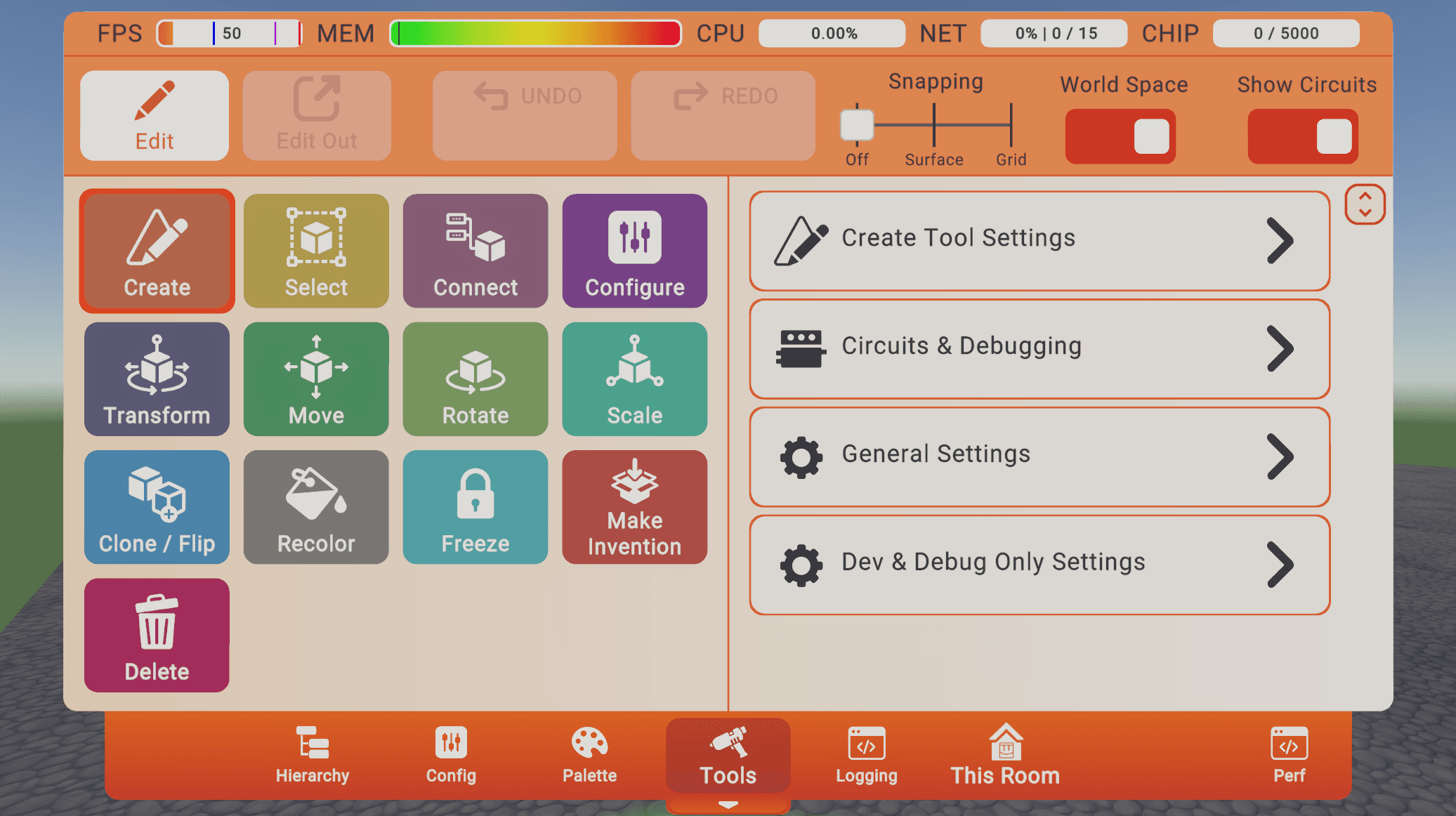
Performance ToolsMay 20, 2024
Listed below are helpful tools that you can utilize to improve your room's performance. If you're a tutorial creator, I encourage you to create small, bite-sized portions of this information. It's incredibly helpful, and we may share your content [=)]!Rec.net - Room StatsTo check the performance of your rooms, go to rec.net, select "Creator Hub," then "Stats," and then choose "Rooms."
- Go to Technical Performance

Rec Room StudioRec Room Studio offers tools to assist you in tracking and analyzing performance. You can access these tools from the Rec Room Studio dropdown menu.
- Texture Import Settings
- Change the resolution of textures per platform, useful to reduce memory and improve performance.
- Memory Explorer
- Check your memory across various categories for all platforms.
- Performance Explorer
- Check your geometry, lighting and misc. performance usage, useful to find objects that can be troublesome.
- Learn more about these tools: https://www.youtube.com/watch?v=gevEnddYd8


- FPS (Frames Per Second)
- Is identical to framerate. It’s how many frames get rendered each second (we render both a smoothed average and the actual current framerate which can be kind of jumpy/flickery).
- Aim for a target framerate of 60 frames per second.
- MEM (Total Used Memory)
- Lowest: we'll probably never hit 0 but for example the base Maker Rooms are solidly green.
- Middle: represents a room we expected to play reasonably well on all platforms.
- High: if a room is in or approaching red, it may start crashing due to memory constraints on more and more devices and particularly the low-end ones. Anything above the highest threshold just stays permanently at the red end of the meter until it comes back within range.
- CPU (Central Processing Unit)
- How many calculations you're running with circuits in the current frame. Some chips will require more CPU heat than others.
- Net (Network)
- How much data you're sending out to other players in the room. While updating something small like a synced bool variable won't take much net heat, something larger like a long string will take a lot more.
- Chip
- The number of chips you have in the room, including chips in circuit boards.
- Every chip increases this count by 1.
Check out our other Performance Tips!